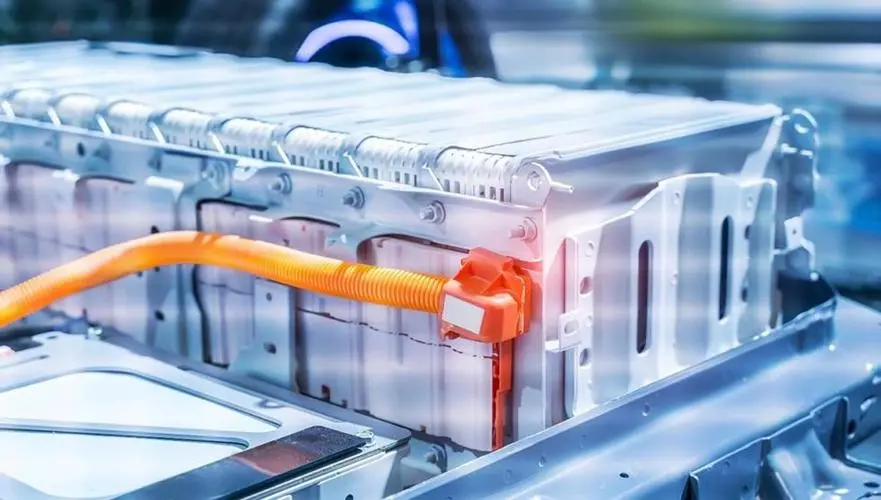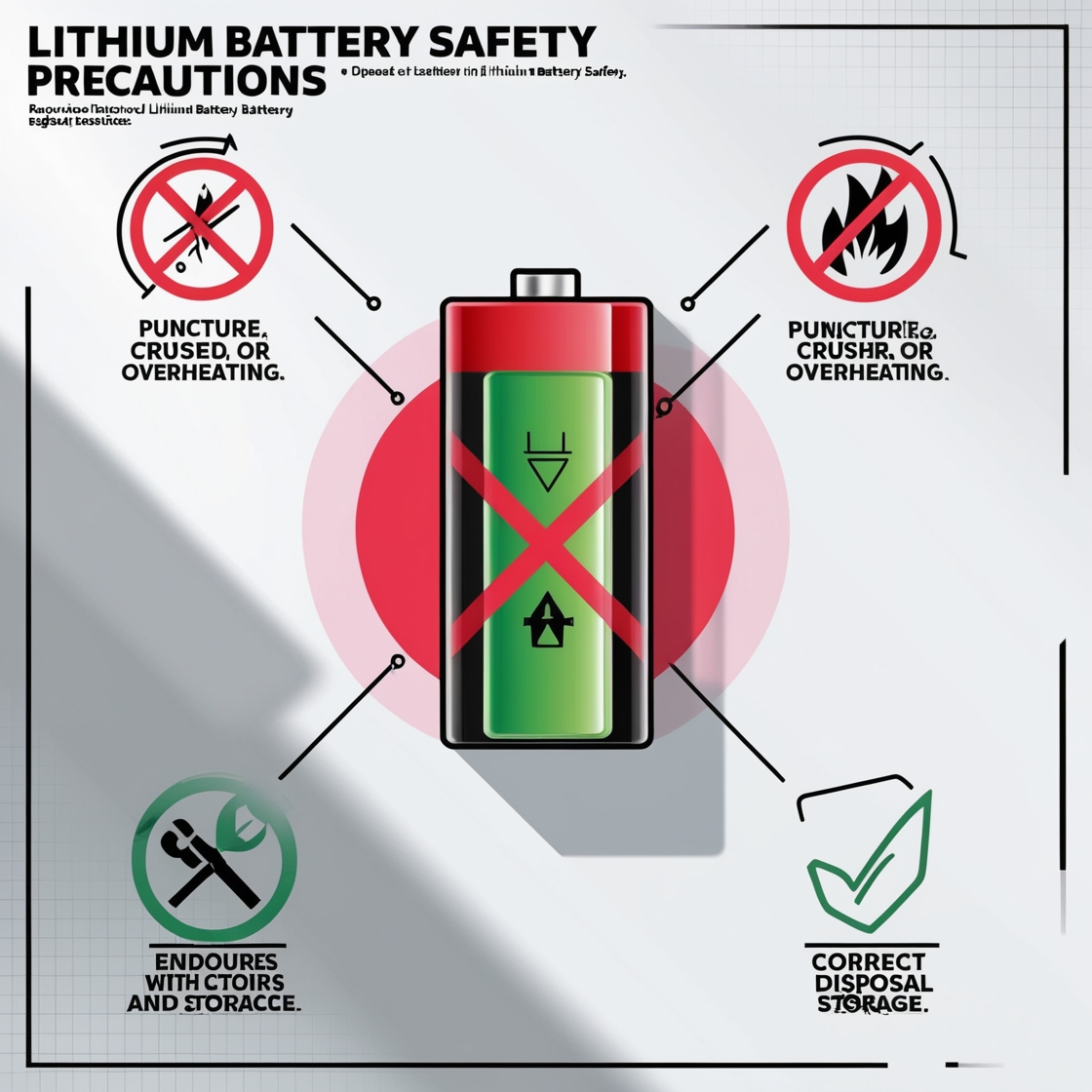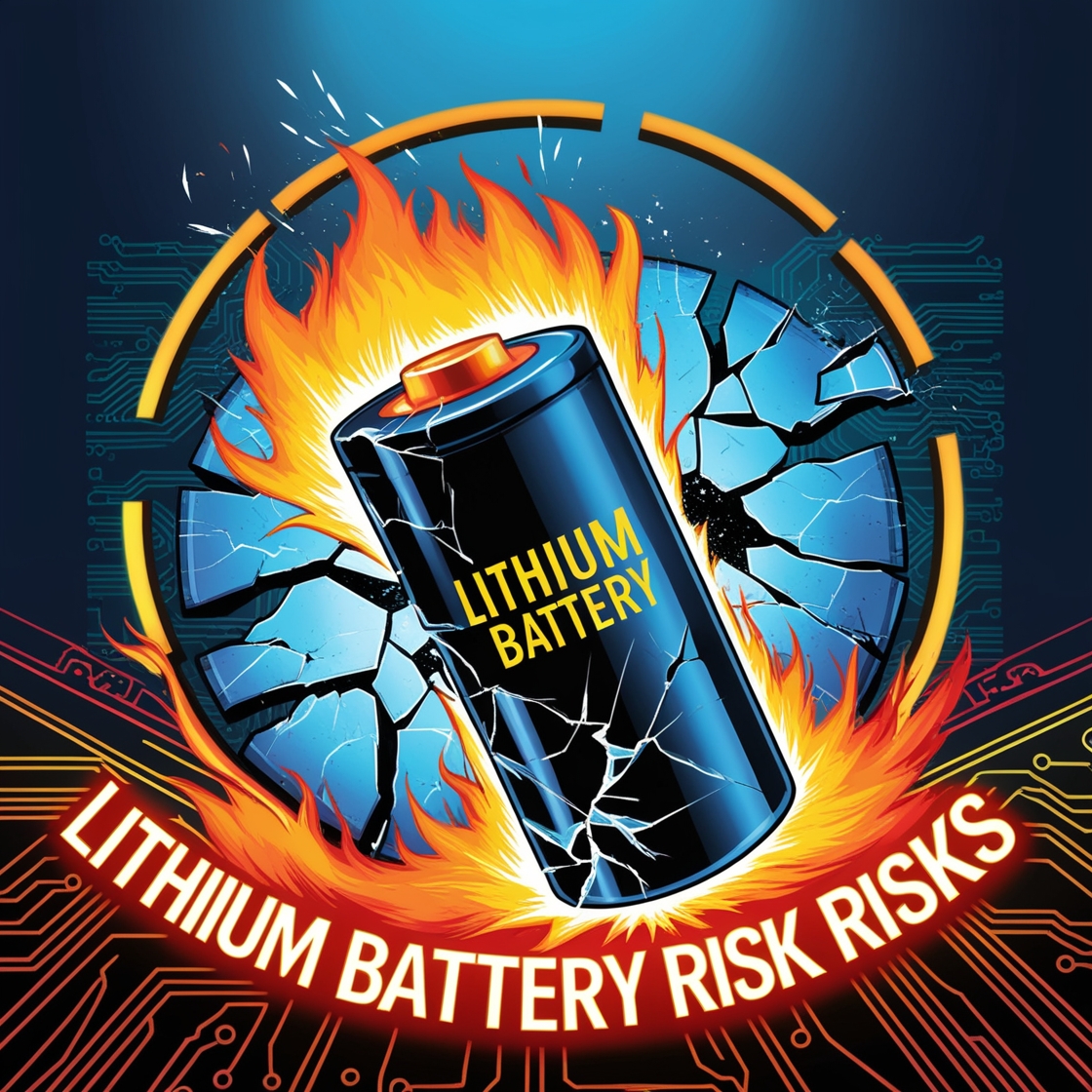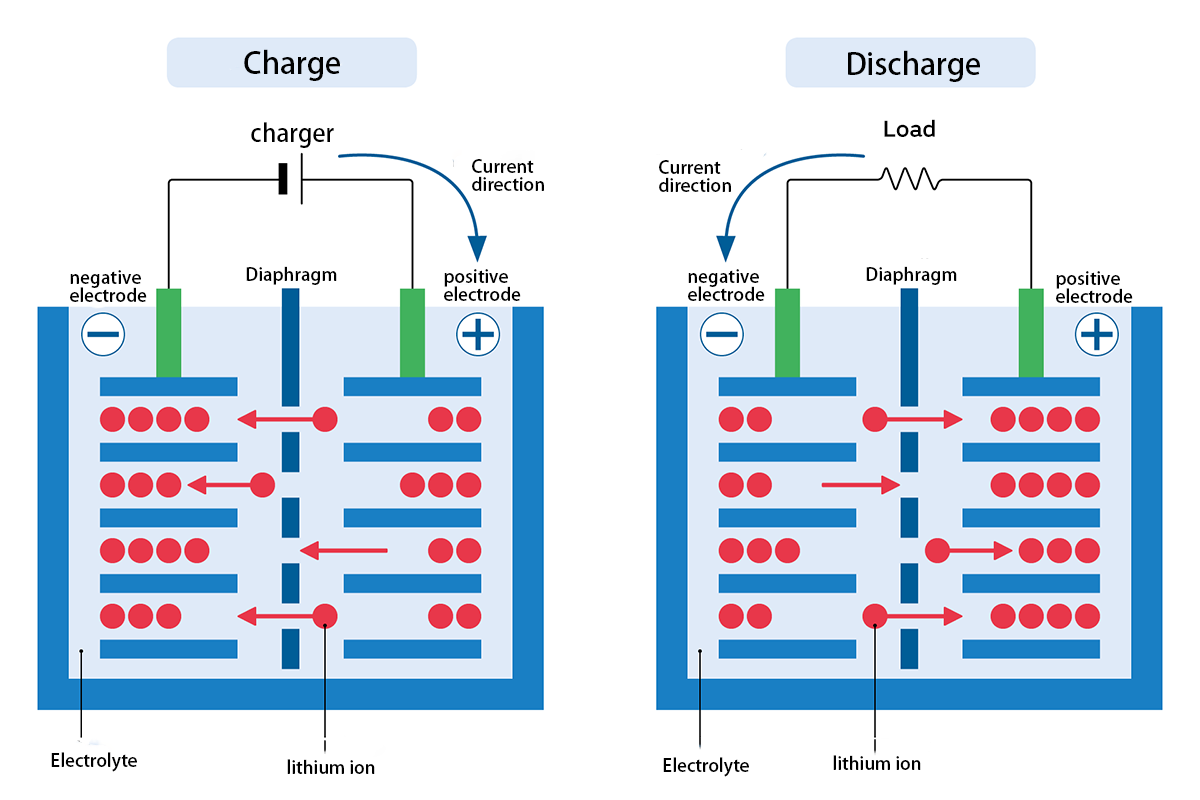Introduction:
With the rapid development of science and technology, lithium batteries have been widely used in consumer electronics, electric vehicles and energy storage due to their high energy density and environmental protection characteristics. However, there are also certain safety risks. Accidents caused by improper use of lithium batteries are common. This blog will analyze the safety risk factors of lithium batteries in detail and explore how to prevent and deal with related accidents to ensure safety when using lithium batteries.

Safety risks of lithium batteries
Thermal runaway: When the temperature inside the lithium battery is too high, it may cause a short circuit inside the battery or accelerate chemical reactions, which may lead to fire or explosion.
Battery damage: Impact, extrusion or corrosion of the lithium battery may cause damage to the internal structure, causing safety problems.
Overcharge/over discharge: Overcharging or over discharge will increase the internal pressure of the battery, which may cause the battery to rupture or burn.
Short circuit: Short circuit inside the lithium battery or in the connecting line may cause the lithium battery to overheat, burn or explode.
Battery aging: As the use time increases, the lithium battery performance gradually decreases, posing a safety hazard.


Preventive measures
1. Choose regular brands and channels
When purchasing lithium batteries, you should choose regular brands and channels to ensure that the battery quality meets relevant standards.
2. Reasonable use and charging
Use lithium batteries strictly in accordance with the product manual and operating specifications to avoid overcharging, discharging and abuse.
When charging, use the original charger or a certified third-party charger to avoid using mismatched or inferior chargers.
There should be someone on duty during the charging process to avoid long-term continuous charging. The power should be turned off in time after the battery is fully charged.
3. Safe storage and transportation
Store lithium batteries in a cool, dry and ventilated place, away from high temperature, fire and flammable items.
Avoid placing lithium batteries in direct sunlight or high temperature environments to prevent the internal chemical reaction of the battery from intensifying.
Anti-shock and anti-pressure measures should be taken during transportation to ensure battery safety.
4. Regular inspection and maintenance
Regularly check the appearance, power and use status of lithium batteries, and deal with problems in time.
Batteries that are not used for a long time should be protected individually to prevent short circuits, and the power should be checked regularly to avoid permanent damage to the battery.
5. Equipped with protection devices
Use a battery management system (BMS) with protection functions such as overcharge, over discharge, short circuit and high temperature to improve battery safety.
When using lithium batteries, corresponding protective devices such as temperature controllers, pressure sensors, etc. can be equipped to monitor the battery status and take safety measures in time.
6. Strengthen education and training and emergency response
Provide safety education and training for personnel using lithium batteries to improve their awareness of battery safety and emergency response capabilities.
Understand the emergency response methods for lithium battery safety accidents, equip fire extinguishing equipment and safety warning signs to ensure rapid response in emergency situations.
7. Track new technologies and developments
Pay attention to new technologies and development trends in the field of lithium batteries, and promptly understand and adopt safer and more advanced battery and management technologies.
-21.jpg)

Conclusion
Although lithium batteries have many advantages in energy density and performance, it is critical to understand the safety risks associated with them and take proactive measures to prevent accidents. By following proper handling and storage specifications and staying alert to signs of potential problems, the risks associated with lithium batteries can be effectively managed to ensure their safe and reliable use in various applications.
Heltec Energy have strong strength in the field of lithium batteries, rich R&D experience and innovation capabilities, and can continuously launch competitive new products. Our company has achieved a number of technological breakthroughs and innovative results in the field of lithium batteries, including technologies to increase battery energy density, extend battery life, and improve battery safety. Our company's lithium battery products have won wide recognition and praise in the market for their excellent performance and reliable quality. At the same time, we support personalized customization to meet the various needs of customers. Choose high-quality lithium batteries to reduce your safety risks in using lithium batteries.
If you have any questions or would like to learn more, please don't hesitate to reach out to us.
Request for Quotation:
Jacqueline: jacqueline@heltec-bms.com / +86 185 8375 6538
Sucre: sucre@heltec-bms.com / +86 136 8844 2313
Nancy: nancy@heltec-bms.com / +86 184 8223 7713
Post time: Jul-23-2024
